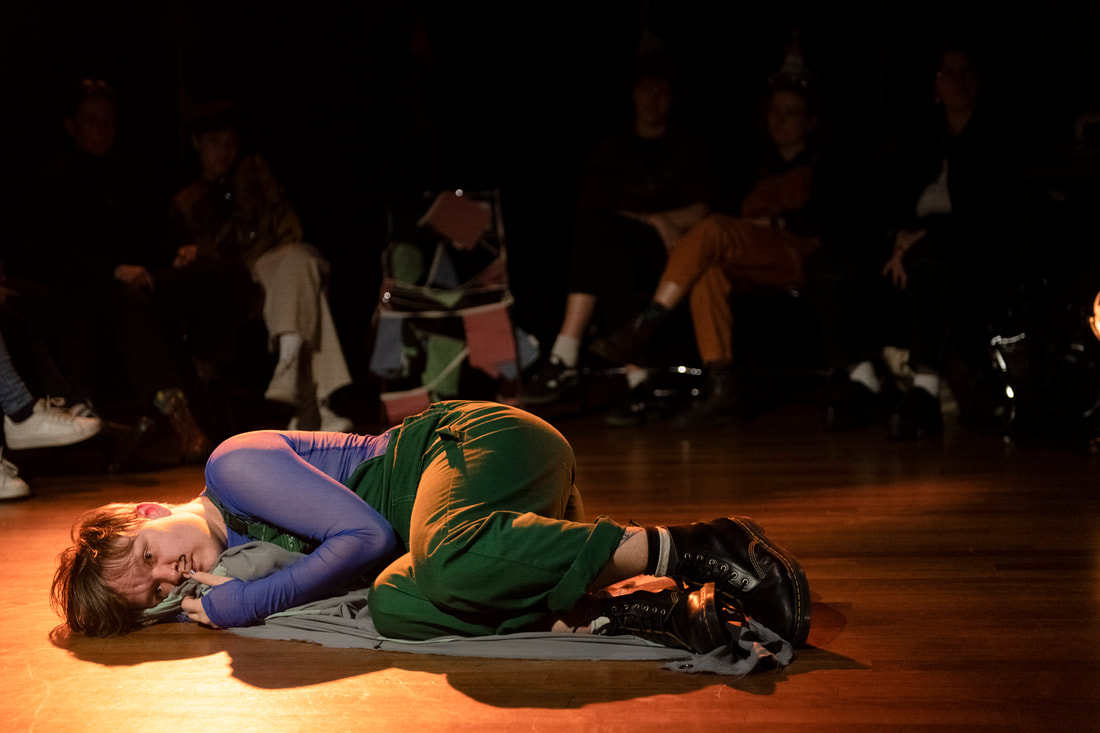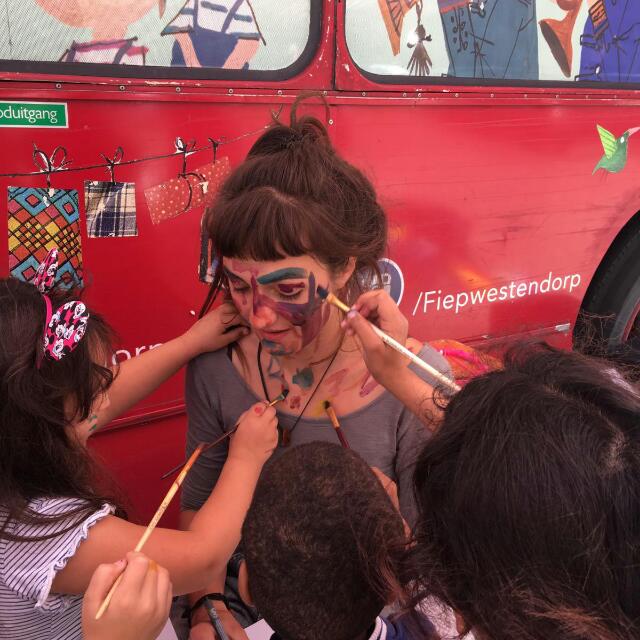"Theater makes the conversation about identity more layered, more human, more poetic, less straightforward."
I'm a non-binary theater artist, educator, organiser and moderator. For me, storytelling serves as a means to question the assumptions we hold about identity and social norms, particularly surrounding gender and migration.
I see theater as a game in which I, as a theater maker, get to set the rules. I can overturn the rules and challenge people to explore what that does to them, as if it is a playground. Theater provides the space to play with serious subjects and examine our own perspectives. I don't understand the world, and for me, theater is an attempt to comprehend it. Who am I, how do I navigate through the world? In this world, as a non-binary individual, I am often 'the other.' Theater is a way for me to connect with the people who label me as such and people who have similar stories.
Theater offers both recognition and the opportunity to connect with people you do not (yet) recognize. Theater can make you feel that you are not alone, because we are all just as searching as you are. For me, the spectator is equal to me. The spectator has their own questions and experiences. During a performance, it should matter that the audience is there. I try to open a door to the audience in my performances and ask them if they will search with me. Theater literally provides the time for this. During the performance, a pact forms between the performer and the spectator in which we can jointly explore how we exist in this time and space.
I see theater as a game in which I, as a theater maker, get to set the rules. I can overturn the rules and challenge people to explore what that does to them, as if it is a playground. Theater provides the space to play with serious subjects and examine our own perspectives. I don't understand the world, and for me, theater is an attempt to comprehend it. Who am I, how do I navigate through the world? In this world, as a non-binary individual, I am often 'the other.' Theater is a way for me to connect with the people who label me as such and people who have similar stories.
Theater offers both recognition and the opportunity to connect with people you do not (yet) recognize. Theater can make you feel that you are not alone, because we are all just as searching as you are. For me, the spectator is equal to me. The spectator has their own questions and experiences. During a performance, it should matter that the audience is there. I try to open a door to the audience in my performances and ask them if they will search with me. Theater literally provides the time for this. During the performance, a pact forms between the performer and the spectator in which we can jointly explore how we exist in this time and space.
In my educational programs, especially when engaging with children impacted by issues leading them to refugee camps or young people dicovering their lhbtqia+ identity, I prioritize their agency. The framework ensures an environment where participants input actively shape the narrative. This collaborative approach refrains from imposing my viewpoints, recognizing the importance of collective storytelling and giving the participants autonomy and a possibility to be creative and create. By encouraging participants to contribute their perspectives, we collectively envision alternative futures, fostering a sense of hope amidst challenging circumstances.
Central to my methodology is the essential role of play. Through carefully designed exercises and activities, I create spaces for participants to experiment, learn social interactions, and construct positive memories. This emphasis on play serves dual purposes: facilitating the processing of past traumas and instilling new, constructive experiences.
Additionally, I recognize the deep human need for belonging, especially among teenagers and children who have faced displacement and/or trauma. In my projects, I strive to establish a sense of community, fostering connections and unity. This communal bond not only provides emotional support but also acts as a healing force for those who've experienced isolation.
Lastly, given the inherent resilience of people (espacially children), I aim to bolster this quality further. Acknowledging the challenges posed by extended asylum procedures, unstable living conditions, and previous traumas, my programs are designed to equip them with skills and experiences that enhance their ability to navigate adversity effectively.


